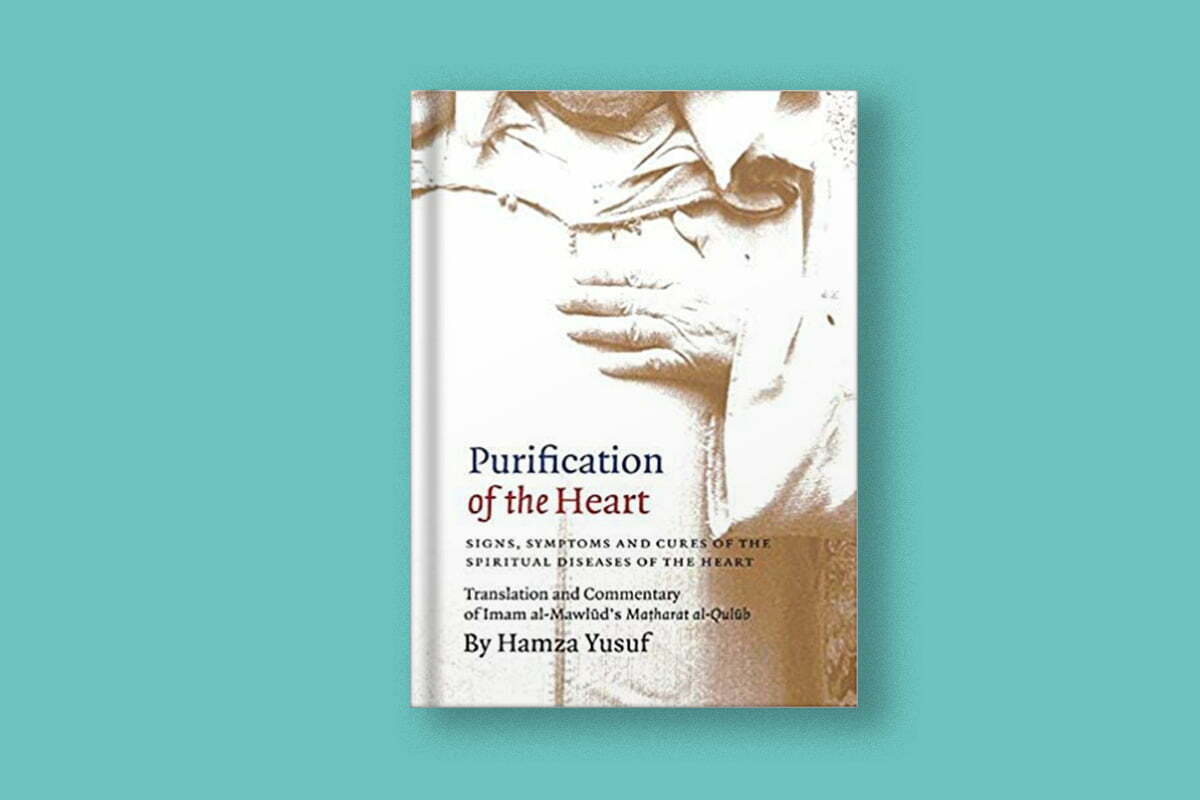Book Name: Purification of the Heart: Signs, Symptoms and Cures of the Spiritual Diseases of the Heart
Translation and Commentary (of Imam Al Maulud’s Matharat Al Qutub) by Hamza Yusuf
Reviewed by: Sr. Parveen Sharif
Hamza Yusuf’s translation and commentary of Imam Al Maulud’s Matharat Al Qutub literally purification of the hearts is a treasure every person Muslim or non-Muslim should acquire to gain insight into the spiritual aspect of the heart and its position in our daily life. The Quran has categorically stated that “on the day of judgement no one is safe save the one who returns to god with a pure heart.” It was the prevalence of the diseased hearts that inspired the author to write such a thought provoking poem and a lot of credit or acknowledgement should be attributed to Hamza Yusuf for his excellent translation and commentary on the poem.
The introduction by Hamza Yusuf gives a very good insight into the Islamic thought in which the heart is viewed as the center of our being. New discoveries with regard to the heart that the heart beats before the brain is fashioned and that the heart has its own intelligence and does not necessarily follow the messages of the brain and the metaphorical use of the heart are excellent and worth reading and contemplating.
In totality 25 diseases are discussed and analyzed in accordance with the poem. The author has devoted each chapter to a disease as mentioned by the imam in his poem. What is truly innovative is the manner in which Hamza Yusuf has commented on each disease, its causes and offers practical solutions to each disease. Each and every stanza of the poem is thought provoking and the author’s effort to analyze each disease with examples within the parameters of Islam and the Quran is truly commendable. The diseases like love of the world, blameworthy modesty, ostentation, seeking reputation, false hopes, boasting and arrogance, antipathy towards death, obliviousness and blaming are diseases that are rampant in today’s world. All this stem from one’s love of the temporal world.
Parallel comparison and examples are given to make the reader understand more effectively. The treatments suggested for every disease are hopes for a diseased heart which is seeking to cleanse itself and are practical and most of them are mentions in the Quran and Hamza Yusuf also links our relationship to Allah and the prophet more firmly. The book is a beacon to those who are in need of hope and light. The positive aspect is the view that every disease is curable as long as one is truly repentant which is in unision with the word of god who says that he is always ready to forgive.
The chapters on remembrance and Ramadan clearly chalk out that our association with the recitation of the Quran, Dhikr, prayer, fast and other obligatory rites need to be performed with a sound heart and Ramadan every year offers every Muslim an opportunity to cleanse the heart of the diseases. Prayers for the prophet are accorded a great value since he is the ultimate example of a human to be modeled upon.
Is it worth reading?
Yes, definitely worthy of reading and qualifies as one of the best gifts that one can gift to another. The owner of a book of this stature must be proud to possess this book as it gratifies one’s heart.
Is the book easy to understand?
The language, style and methodology adopted is no doubt high as it needs to be frequently read in order to gain a deeper understanding of the diseases mentioned in the book which will ultimately help us to comprehend the treatment and cure prescribed for each disease. The process of purifying the heart is not the easiest and a single reading is not sufficient to achieve the goal of a heart purified from the diseases. But the language should not be a deterrent that prevents one from reading this spiritual prescription.
Notable quotes:
“We live in the age of Noah in the sense that a flood of distraction accosts us. It is a slow and subtle drowning. For those who notice it, they engage in the remembrance of god. The rites of worship and devotion to god’s remembrance are planks of the ark. When Noah started to build his ark, his people mocked him and considered him a fool. But he kept building. He knew what was coming. And we know too.”




